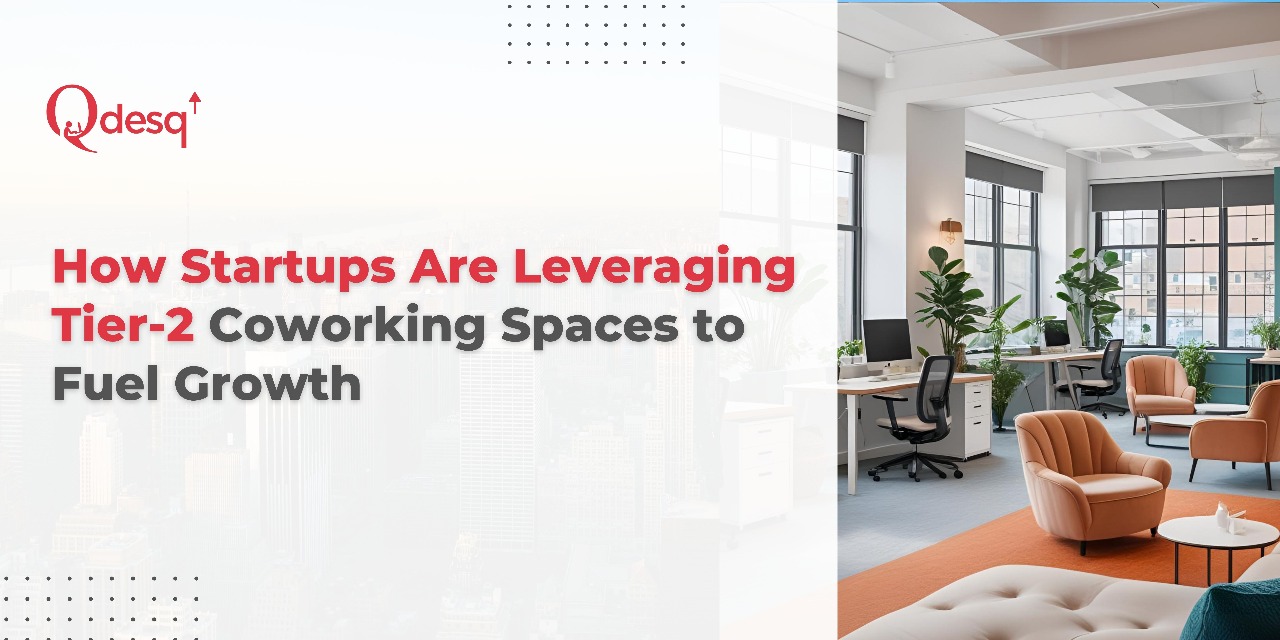India’s startup environment is changing a lot. The idea that startups have to be in big cities like Bengaluru or Mumbai is not as strong as before. Now, smaller cities are becoming important places for new business ventures. Cities like Indore, which is known for its manufacturing, and Kochi, which is developing its IT industry, are becoming centres for creativity and new opportunities. This shift isn’t just about location; it’s about coworking spaces in Tier 2 cities for startups that offer unique advantages to help businesses grow and succeed.
Challenges Faced by Tier-2 Startups
Despite their rising prominence, startups in Tier-2 cities often wrestle with specific challenges:
- Limited availability of premium office spaces: Unlike metros, ready-to-use professional offices are in short supply.
- Budget constraints: While operating costs tend to be lower, finding affordable, flexible, and scalable office options designed for startups can be tough.
- Talent acquisition hurdles: Although many of these cities house reputed engineering and management institutes, attracting and keeping qualified talent remains a challenge.
- Ecosystem maturity: Fewer networking events, mentorship opportunities, and peer-support groups can lead to isolation for new ventures.
How Coworking Spaces in Tier 2 Cities Drive Solutions
Enter Tier 2 coworking spaces, a dynamic remedy to many of these obstacles. They empower startups in non-metro cities by offering:
-
- Flexibility to easily scale office space up or down as the startup’s size and needs evolve.
- High-quality amenities, including high-speed internet, meeting rooms, printing facilities, and adaptable seating arrangements.
- Vibrant, collaborative communities that encourage learning, partnerships, and networking.
- Facilities tailored to foster productivity and innovation, overcoming local infrastructure gaps.
- Cost-effective, fully-furnished flexible offices for rent in non-metro cities without the burden of long leases, trimming upfront and running expenses.
Making Workspace Search Easy with Tech Platforms
Finding an ideal coworking space in a non-metropolitan city can be both challenging and time-consuming. Fortunately, technological platforms like Qdesq are streamlining this process by providing:
- Extensive, thoroughly vetted workspace listings across Tier-2 cities, ensuring high standards of quality and security.
- Search filters that help startups pinpoint spaces based on location, affordability, desired amenities, or office setup preferences.
- Transparent pricing structures with no surprise costs, allowing clearer budgeting.
- Flexible booking options from single-day passes to long-term leases enable startups to stay nimble and control costs.
- User-friendly digital interfaces that enhance the speed of searching and booking processes, allowing entrepreneurs to concentrate more on their main business activities.
Tips for Picking the Right Workspace in Tier 2 Cities
Startups should consider several factors when choosing coworking spaces:
- Align the workspace size and type with current team numbers and growth forecasts.
- Choose locations close to transport links and business hubs to ease commuting and client accessibility.
- Confirm the availability of essential amenities like high-speed internet, meeting options, and 24/7 access.
- Look for coworking communities that foster regular events and interaction to benefit from networking and shared learning.
- Prioritise clear, flexible pricing and terms that won’t lock the startup into long, burdensome contracts.
Benefits of Coworking Spaces for Startups in Tier 2 Cities
Tier 2 coworking spaces provide cost-effective and adaptable work environments that help startups cut costs and skip long-term lease deals. These spaces often include professional amenities like high-speed internet and conference rooms, which make it simpler to work productively.
Flex spaces encourage teamwork and connections, helping startups meet mentors, clients, and business partners. They also provide options that can grow or shrink depending on the startup’s needs. Overall, coworking spaces help drive innovation, build a sense of community, and increase productivity in a dynamic and cost-friendly manner.
Looking Ahead
As more people work from home and companies face higher costs, there is a growing need for inexpensive and adaptable office spaces in Tier 2 cities. More money is being spent on setting up shared workspaces, helped by government policies that support this growth and the interest from businesses in the private sector.
Technology platforms that link startups with high-quality office spaces will play a key role in fostering an inclusive, scalable, and sustainable ecosystem for startups across the growing cities of India, like Qdesq, making it easier than ever to discover and book ideal flexible office spaces across 100+ cities. Find workspaces that align with your growth vision in pan-India.











